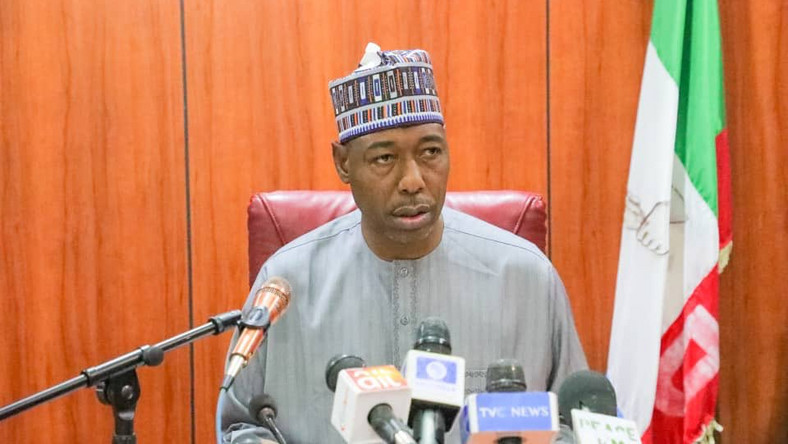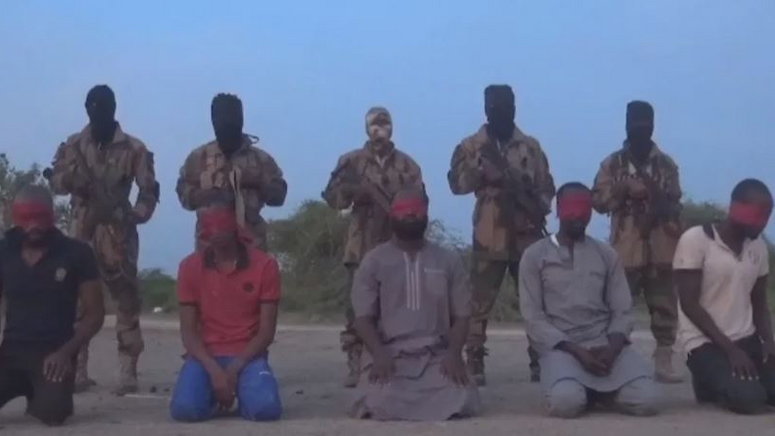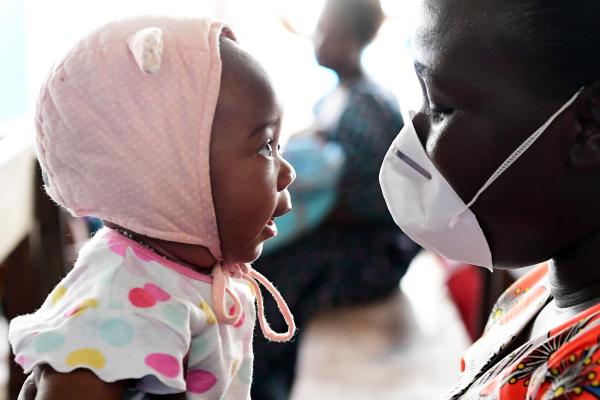Health and Safety
2,000 Nigerian women die annually of unsafe abortion – Gynaecologist

…UNICEF condemns use of teenage girls as suicide bombers in Borno***
No fewer than 2,000 Nigerian women die of unsafe abortion annually with Northeast recording highest rate, says Dr Christopher Lamai, Head of Department, Obstetrics and Gynaecology, Federal Teaching Hospital, Gombe.
Lamai made the disclosure at the capacity building workshop for journalist on Sexual Reproductive Health and Rights (WSRHR) organized by Ipas Nigeria, an international NGO on Tuesday in Gombe.
He said the rate contributed to 13 per cent of mortality in the country as many women died from abortion more than malaria.
According to him, every eight minutes women die of unsafe abortion while an estimated 220,000 children are left motherless annually as a result of abortion related death.
He advised participants to fully sensitize the public on how to undergo safe abortion towards reducing the rate of mortality in the country.
Earlier in her remarks, Mrs Hauwa Shekarau, the Ipas Country Director said the objectives of the training were to equip journalist with international, regional and national legal framework for the protection of WSRHR.
Shekarau said the training would also transform the attitude of the media on issues around WSRHR.
She said that Ipas was working closely with legislatures and law enforcement among other stakeholders on importance of safe abortion to reduce high rate of mortality in Nigeria.
In the meantime, UNICEF has condemned the use of children as suicide bombers in Mandarari community in Borno.
NAN reports that the Borno State Emergency Management Agency (SEMA) in its report said 30 persons were killed and 42 others injured in multiple bomb blasts that rocked a Borno village on Sunday night.
according to several reports, three children two girls and a boy (ages unknown) were used to detonate explosives that killed 30 people and injured 40 others at a community football viewing centre in Konduga in Borno state.
Mr Peter Hawkins, the UNICEF Representative in Nigeria, in a statement released in Maiduguri on Tuesday, said: ”UNICEF appeals to all those involved in this terrible conflict to protect children at all times and to keep them out of harm’s way.
“This incident brings the number of children who have been reported as having been used as human bombs to five, since January 2019.
”In 2018, 48 children including 38 girls were used in suicide attacks.
“We again call on all parties to the conflict in north-east Nigeria to immediately cease all attacks against civilians, to stop using children in this conflict, and to abide by their obligations under international humanitarian law.”he said
“While UNICEF sends its condolences to all those who have been killed or injured in this horrific incident, It is unacceptable that children should be used in this way.
NAN reports that UNICEF in a report said children were used in suicide attacks in Nigeria, Chad, Niger and Cameroon.
The UNICEF said that since 2012, non-state armed groups in north-east Nigeria have recruited and used children as combatants and non-combatants, raped and forced girls to marry, and committed other grave violations against children.
Some of the girls, the UN agency said had become pregnant in captivity and give birth without any medical care or attention In the ongoing armed conflict in north-east Nigeria, more than 3,500 children were recruited and used by non-state armed groups between 2013 and 2017.
The use of children in suicide attacks by armed groups as person-borne explosive devices significantly increased from 2014 to 2017.
In 2018, it said a total 48 children (38 girls) were used in suicide attacks whilst 146 (45 boys, 101 girls) children were used in the same way in 2017.
In first quarter 2019,it added two girls were reported to have been used as ”human bombs”.

Health and Safety
AREPO: Police Deploy Team To Rescue Kidnapped Wife Of Ex-AIG Odumosu

The Police Command in Ogun says it has deployed a team of officers to the scene of Thursday’s kidnap of Mrs Odumosu, wife of retired AIG Hakeem Odumosu.
The Command’s spokesperson, CSP Omolola Odutola, disclosed this in a statement in Abeokuta on Friday.
Odutola said the victim, a resident of Aminu Street, Orange Estate, Arepo, Obafemi Owode Local Government Area, was kidnapped at about 9.55 p.m. on Thursday while entering her home.
She explained that four masked men attacked and dragged her out of her Lexus Sports Utility Vehicle, taking her through a swampy area to an unknown location.
“The Divisional Police Officer (DPO), Warewa Division, has led policemen to the scene where they are currently searching the swampy bush area,” she said.
According to the spokesperson, the DPO had also contacted the Warewa and Maaba community heads to deploy local security forces to the riverine area.
“Further updates will be provided,” she said.
Odutola said the state Commissioner of Police, Lanre Ogunlowo, had been briefed and that all operations had been deployed to assist with digital intelligence to ensure the victim’s rescue.
Health and Safety
NSCDC Nabs 36 Scavengers With Weapons, Illicit Drugs, In FCT

The Nigeria Security and Civil Defence Corps (NSCDC) has apprehended 36 scavengers over alleged possession of weapons and illicit drugs in the Federal Capital Territory (FCT).
The Commandant, NSCDC FCT Command, Dr Olusola Odumosu, disclosed this, on Friday in Abuja, saying the suspects were caught in various areas of the FCT.
The FCT Minister, Nyesom Wike, had prohibited activities of scavengers in the FCT and suspended two weeks of operations of pan-takers across the city.
Odumosu said that items allegedly recovered from the suspects included four daggers, three Jack knives, two chisels and, three knives.
Others are narcotic drugs, ten bottles of codeine syrup, 45 wraps of cannabis sativa, thrash bags and pieces of iron rods.
“The suspects are currently being investigated and profiled and I will ensure that due diligence is followed in their prosecution,” Odumosu assured.
The corps commandant advised FCT residents to dispose of refuse through the appropriate waste management companies and stop patronising scavengers, popularly called “Baba Nbola” for the sake of safety.
He said that their detention was necessitated to nip vandalism and theft of public infrastructure such as manhole covers, streetlights, solar panels, armoured cables and other assets in the bud.
Odumosu said that the suspects roam the streets of the FCT, perpetrating all forms of criminal activities under the guise of scavenging.
“Most of these scavengers are dangerous elements that must be flushed out of the FCT if we want crime to abate.
“The public should note that, although they appear innocent, harmless and vulnerable, most of them are extremely dangerous, their activities are criminal and they constitute threats to the nation.
“They go about the nooks and crannies of the city scavenging for plastics, scrap metals and irons, but from previous arrests, interrogations and investigations we realised that their real business is to vandalise infrastructure.
“This has resulted in the untimely death and maiming of many innocent Nigerians,” he said.
The commandant further said that investigations also revealed that these scavengers serve as informants to criminals.
“They also assess and profile you through the kind of household waste products you dispose of, which in most cases reveals your status and lifestyles,” he said.
Odumosu urged residents to join hands with the corps and other security agencies to flush out these dangerous elements in the FCT.
“Chase scavengers away whenever you see them in front of your houses, streets, neighbourhoods or estates.
“Give us relevant information about any suspicious movements or activities of these criminal scavengers who have been restricted to operate at dump sites only,” the commandant said.
Health and Safety
UCH Ibadan, Performs Complex Procedures, Reconstructs Urethral Stricture

A team of surgeons at the University College Hospital (UCH) in Ibadan, led by Prof. Olayinka Shittu, successfully performed an intricate procedure to reconstruct a 50-year-old patient’s urethral stricture.
The UCH Public Relations Officer (PRO), Mrs Funmi Adetuyibi highlighted this in a statement on Friday in Ibadan.
Adetuyibi said that the patient had suffered a pelvic bone fracture in a road traffic accident, resulting in a complex injury requiring specialised expertise.
According to Adetuyibi, Shittu, a consultant surgeon and urologist, said reconstructing a urethral stricture was an extremely challenging procedure, even for the most skilled surgeons worldwide.
Shittu remarked that it demanded a high level of expertise in reconstructive urology and could take several hours to complete.
The urologist emphasised that despite the daunting task, the UCH Ibadan team persevered, leveraging alternative power sources to maintain critical hospital functions.
He praised the hospital’s management for its efforts.
“Although the power situation has significantly impacted our ability to perform major interventions over the past year, our management team has found ways to adapt.
“We’re grateful for their dedication to ensuring our patients receive the best possible care,” Shittu said.
The urethral stricture is a narrowing of the urethra, which is the tube that carries urine out of the body.
The narrowing can cause obstructed urine flow leading to various symptoms and the causes include injury or trauma to the urethra, infection, inflammation and congenital conditions.



























